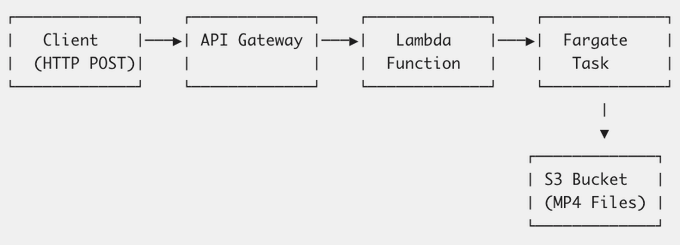Streamr TV, the decentralized live streaming platform launching in 2025, has announced upcoming recording capabilities for livestreams. This feature will allow content creators to save their broadcasts directly on the platform.
The recording functionality is part of a broader feature rollout for StreamrTV, which aims to provide a decentralized alternative to traditional streaming services.
Key features coming:
- Livestream recording
- Additional features to be announced
- Full launch expected in first half of 2025
StreamrTV will operate on the Streamr Network, enabling decentralized video broadcasting.
📼 Easily record your @Streamr_TV livestreams! This and more features are coming soon 👀
🎬 Coming soon: Video storage for @Streamr_TV! StreamrTV is evolving from live-only to support VOD use cases. We’re starting with centralized storage (S3), with decentralized options coming later this year. Here’s how it works: 🔁 HTTP trigger → API Gateway → Lambda →
Streamr Network Sponsorship Top-ups for June/July 2025

The Streamr Network has refreshed its stream Sponsorships for June/July 2025. The top-ups apply to: - Streamr Video - Streamr Radio - Minima Global Decentralized Entrypoint Network - Binance DATA/USDT Ticker *No action required for currently staked participants.* These top-ups maintain continuity from the previous May/June funding round, ensuring uninterrupted service across all sponsored streams.
Streamr Enables Peer-to-Peer Data Sharing Without Centralized Control
Your devices generate valuable data that's currently captured by centralized platforms. Streamr offers an alternative approach: - Enables direct peer-to-peer data sharing between devices - Eliminates need for centralized servers and gatekeepers - Run nodes from personal computers - Earn rewards while supporting decentralized infrastructure - Join Data Unions to monetize your own information The platform aims to shift control from corporate platforms back to users, creating a more equitable data economy. Users can participate in the network's growth while maintaining sovereignty over their data.
Streamr.TV Launches Browser-Based Livestreaming Without Web3 Friction
Streamr.TV has launched a browser-based livestreaming platform that operates on Web3 infrastructure while maintaining a seamless Web2-like user experience. The platform requires no installations or intermediaries, marking a significant advancement in Web3 UX design. Key features: - Direct browser-based streaming - No wallet or crypto knowledge required - Built on Streamr's decentralized network - Zero installation needed The platform demonstrates how Web3 technology can be implemented invisibly, solving a major adoption barrier. [Read the full technical breakdown](https://blog.streamr.network/streamrtv-the-future-of-live-broadcast/)
Streamr TV Launches Creator Program and Base Initiative
Streamr TV is launching a new program for filmmakers and digital creators to showcase their work through live, time-limited premieres. The platform is partnering with @pplpleasr1 to launch a groundbreaking initiative on Base that aims to democratize film and storytelling. - 5 pilot episodes already available - Platform combines streaming with crowdfunding - Creators and audiences collaborate on content direction *Creators with films, short documentaries, or exclusive content are invited to participate in this innovative streaming experiment.* Contact: [@Streamr_TV](https://twitter.com/Streamr_TV)
DePIN and Streamr: Decentralized Infrastructure Explained
Decentralized Physical Infrastructure Networks (DePIN) are transforming app development and data streaming. Here's why Streamr's implementation stands out: - **Enhanced Performance**: No central servers means fewer points of failure - **Economic Incentives**: Network operators earn rewards for participation - **Privacy First**: No mandatory logins or user tracking - **Organic Growth**: Network expands without corporate control The Streamr Network operates through independent nodes, enabling peer-to-peer data transmission without central control points. This architecture provides better reliability while maintaining true decentralization. *Key Benefits*: - Direct P2P data flow - Improved uptime - Cost-effective scaling - Enhanced privacy protection
